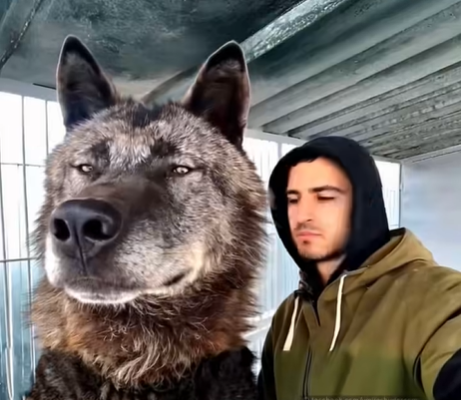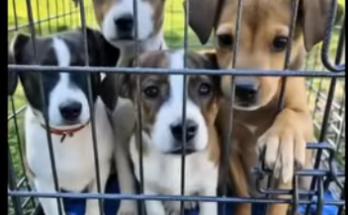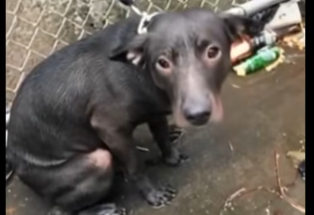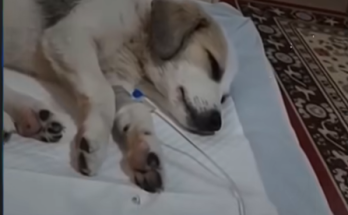That year, winter came early. By mid-November, the forest trees stood silent, wrapped in snow as if tucked beneath a thick white blanket, bracing for the cold ahead. Alexander, a man living on the outskirts of a quiet village, often took long walks through the woods. He cherished solitude, the stillness, and the clean, sharp air. Out there, his thoughts settled and worries seemed to melt into the snow.
One such morning, he set out as usual. The forest was especially quiet. No wind, no birdsong—only the crunch of his boots breaking the crisp layer of frost. But the calm didn’t last. A sound pierced the silence—faint, broken, and oddly pleading.
He stopped, listening carefully, scanning the area. Then he left the trail, moving toward a small hollow beneath a wide-armed tree. There, barely visible against the white, something shifted. A tiny creature lay huddled in the snow, shivering.
A puppy.
The little thing was trembling from the cold, snow clinging to its matted fur. Its eyes were barely open, and the weak whimpers it made told Alexander everything—this animal was freezing, starving, and dangerously close to giving up.
Without hesitation, Alexander took off his heavy coat, wrapped the pup in it, and headed home. Inside, he gently warmed the animal, gave it milk, and dried its soaked fur. That night, the puppy slept near the stove, blanketed in warmth and safety for the first time in who knows how long. Alexander hadn’t planned to take in a pet, but some decisions are made by the heart, not the mind.
He named the pup Taiga, after the forest that had nearly claimed his life.
From the beginning, Taiga was… different. He grew quickly, barely barked, ate little, and showed a striking level of intelligence. He watched Alexander with an intensity that felt more conscious than curious. Soon, he was opening doors with his paw, fetching objects without command, even turning on the light switch by nudging it with his nose.
Months passed. Taiga matured into a strikingly beautiful but peculiar animal. His muzzle became sharper, his eyes glowed with a yellow hue, and his movements—graceful, silent—reminded Alexander less of a dog and more of something else entirely. He didn’t growl at strangers. He observed them, still and unreadable. People in the village started whispering.
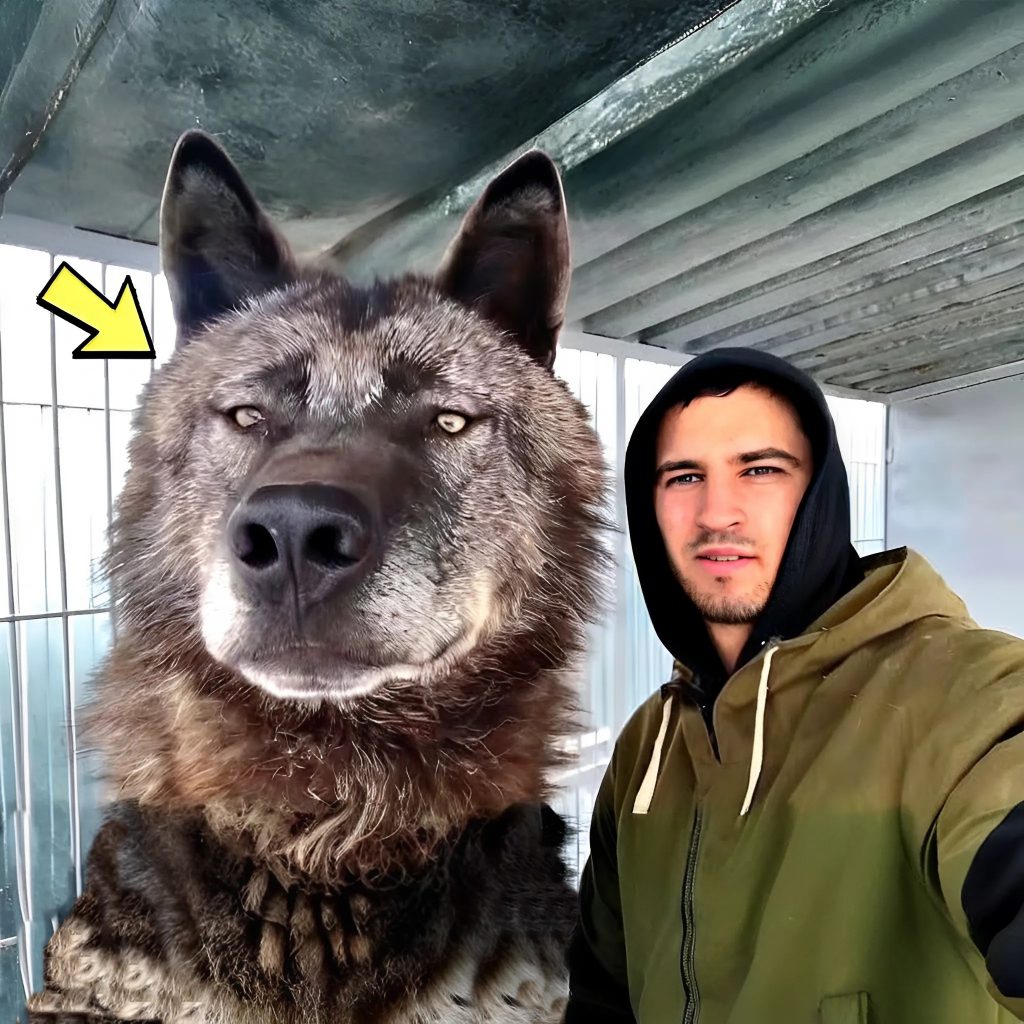
«That’s no dog,» a neighbor said. «Looks more like a wolf.»
Alexander laughed it off. «Just a mutt. A mixed breed.»
But doubt had begun to take root.
Eventually, he took a picture of Taiga and sent it to a veterinarian in the nearby town. The vet examined it, then asked him to bring the animal in person. The visit was short, but the conclusion was unmistakable.
“This isn’t a dog,” the vet said. “This is a wolf. A pure one, most likely of the rare Siberian subspecies.”
Alexander was stunned. He had raised a wolf in his home, under his roof, fed him from his hand, taught him to trust, to stay close. And the wolf had loved him back. There was no aggression, no wildness—only calm, quiet loyalty. Once, during a walk, a wild boar had charged at them from the underbrush. Without hesitation, Taiga had placed himself between his human and danger, standing his ground until the beast retreated.
The truth changed nothing.
Alexander didn’t cast him out. He didn’t lock him up or call authorities. But he knew, deep down, that a choice would eventually come. Spring arrived. And with it, a change in Taiga. He began to linger near the windows, sniffing the wind. He would walk to the tree line and sit there, staring into the woods. The call of the wild was awakening in him.
One morning, Alexander woke to silence. No sound of paws, no gentle breathing near the stove. He stepped outside. There were tracks in the snow—leading toward the forest. Taiga was gone.
No goodbyes. No howls. Just a quiet departure, in the only way a creature like him could manage—with dignity.
Alexander didn’t search for him. He understood. If Taiga ever wanted to return, he would. Wolves do not forget those who show them kindness. And even if he never came back, Alexander would always carry the memory of that winter—when he saved a puppy, and in return, found a companion who changed him forever.
